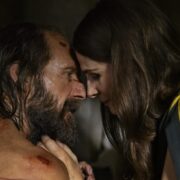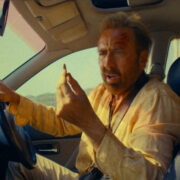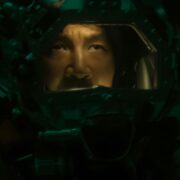Interview With Bryan Brown, Star Of PALM BEACH
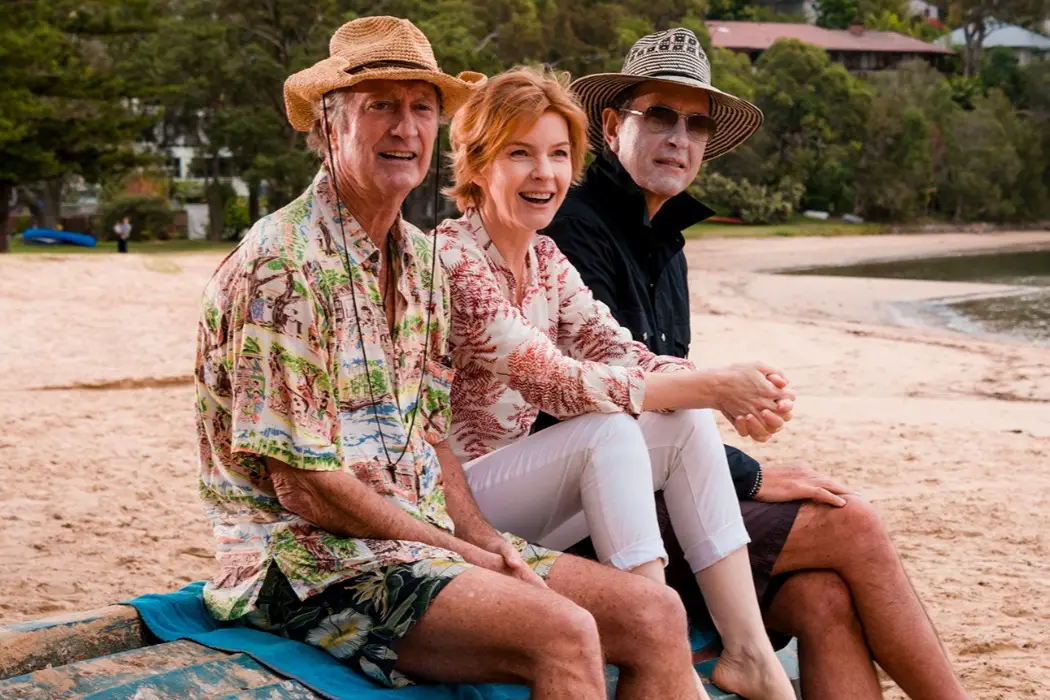
Alex is a 28 year-old West Australian who has a…
For Australian screen legend Bryan Brown, it all began with a quiet part in Love Letters from Teralba Road. The 1977 B&W short, which David Stratton called the “best featurette of the decade” in 1980, commenced Brown’s prolific acting career, which has featured enduring leading performances in a number of Australian screen classics; Breaker Morant, The Thorn Birds, Two Hands and even most recently Sweet Country, cushioned in-between memorable appearances in Cocktail, Gorillas in the Mist and the cult favourite F/X franchise – the only films to present a remote controlled clown violently brawling with a mafia hitman (as of right now anyway).
Not only did his appearance in the 1983 mini-series The Thorn Birds net him a supporting actor nomination at both the Emmys and the Golden Globes, but he also met his wife Rachel Ward on set too. Rachel Ward, the English-born Australian actress whose on-screen credits include Against All Odds, After Dark, My Sweet and the underrated exploitation thriller Fortress, has also built herself an impressive directorial library, with several shorts and television episodes leading to her feature-length directing debut in 2008 with Beautiful Kate, a bold and stylish drama that signalled Ward as another illustrative female voice in today’s shifting Australian film landscape.
Her follow-up, Palm Beach was best summed up by its star: “The Best Exotic Marigold Hotel meets The Big Chill“, describes Bryan Brown, who heads an all-star cast of beloved film veterans, who share the screen as a parade of old friends whose sunny reunion within the titular suburb is decorated with nostalgic reminiscing, shattering revelations and domestic dramas, facilitated by a deluge of multicoloured margaritas and a real smorgasbord of seafood. Sharing in the celebrations is recent Oscar-nominee Richard E. Grant, Aaron Jeffery, Jacqueline McKenzie, Heather Mitchell, Sam Neill, Greta Scacchi and Claire Van Der Boom.
Before the film’s Australian theatrical release on August 8th, I had the pleasure of sitting down with Bryan Brown and talking about Palm Beach, his personal connection to the secluded slice of paradise, what Rachel Ward brought to the film as a director, making movies for older people and what it’s like to make a movie with your mates.
Alex Lines for Film Inquiry: Can you talk about your history and personal connection with the suburb of Palm Beach?
Bryan Brown: I think the first time I ever went to Palm Beach was probably in about 1965 or ‘66 when I was working as an actuary student at the AMP and there was a bloke there who liked to surf too. I used to surf out of Cronulla and I didn’t have a car and he said, oh let’s go up to Palm Beach for a change, so the pair of us went up there, drove up there for the day and I saw a lot of what were known as MGB’s in those days (Cars) and it was very beautiful, but I remember thinking like, Wow, all these young people have got these special cars and everything! I felt a little bit awkward and out of it, and that was my first recollection of the place.
I then got to do another movie called Palm Beach back in 1980 I think. I went to stay at the First Assistant’s house at Whale Beach and while we shot the first Palm Beach by Albie Thoms – the totally improvised movie about sex, drugs and rock and roll – and I fell in love with the area. I thought, this is a great area and it wasn’t exclusive at all. You know, like Nat Young the great surfer was there, Midget Farrelly too, just people that love waves were there. It was laid back, It was easy going and so I really enjoyed the shoot there.
In fact, when I got married, I showed Rachel Whale Beach and said, I’d like to live up here, what do you reckon? And then we spent the first 11 years of our marriage and had the three children up there. So you know, I have a real connection because of a film called Palm Beach and I end up 30 years later, making another film called Palm Beach.
How important is it for you to tell stories on-screen focused on the trials and tribulations of older people and the realities of retired life?
Bryan Brown: Well, when I did the first Palm Beach, I was in my early thirties and I’m now in my early seventies, that’s 40 years difference and I’m a different bloke to then, but I’m still involved in storytelling and film. The things that are happening to me at my age now, it’s very different to what happened to me as a 30 year old, but there are other people my age and from 50 onwards that are experienced, who have retired early, well what does that mean? What happens to you when you retire? What are you dealing with? There’re people who sell businesses at my age, whereas at 30, they started them. What does that mean when you sell something that you’ve had all your life and gave everything to – what’s that hole create?
I’m in touch with my age group more than I’m in touch with a younger age group. Even though I mix with a younger age group – I’ve got children and that – but I understand the life of an over 60 person. I don’t live exactly the same life, I live my life, but I have children, I have work, I have all those things that go up and down around the corner so it’s natural that I’d want to tell stories about what I know. Hence Palm Beach, which was motivated by a situation where there was a bunch of us at this age having a Christmas and I realised we were all dealing with something and I went, let’s talk about it. Let’s get it up on screen.
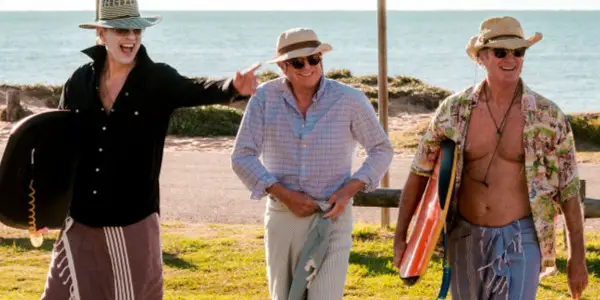
Stemming from an idea of your own, and being co-written by Rachel, how much of yourself do you see in the character of Frank?
Bryan Brown: Well I don’t see anything of myself in any character that I play, but obviously I bring things of myself to it that I’m unaware of, where other people might go, well that’s you or I recognise that, but I’m not aware of that. I’m playing a character. I’ve got to try to be truthful emotionally to the moments that are happening with that character.
Do I have a house up on the top of Palm Beach looking out there? No. Did I create a business selling tee shirts with artists and made a fortune from it? No. Was I in a rock and roll band when I was 30? No. So I’m not that, I’m not that person, but I do relate to the things that he’s dealing with, the real relationship with his son, wanting his son to be better and what may have been behind that. I’m in touch with those things.
You’ve worked with a number of directors, so between this and Beautiful Kate, what do you feel that Rachel Ward brings to her films as a director?
Bryan Brown: Yeah, I think that’s a very good question because all directors are different. I’ve worked with every sort of director. I’ve worked with directors who have no eye, no vision, but they’re very good at just understanding what’s going on with the character. There’s all sorts of directors.
Rachel is also a writer, so it enables her at an early stage to be fashioning the world, because what she does is she creates a world and she’s incredibly good at it. When you look at Beautiful Kate, it’s a rather beautiful world – it’s an aesthetically striking world, true to that world – you know, galv iron, stumps, whatever, but there’s something aesthetically quite extraordinary about it and so she’s done the same here.
Palm Beach is one of those places. It’s really hard to make it look bad, but what makes it good? It’s not just like, isn’t that pretty, it’s like, what lives there? What’s a wave look like? What does it give you? She’s very good at aesthetically understanding and being very environmentally conscious about the world around her, what she sees, how it touches, what a leaf looks like. So she’s very good at creating the world, that’s what she brings to things.
Obviously this film has quite the loaded cast, with many actors you’ve worked with before. How beneficial do you feel it is to work with friends?
Bryan Brown: Well, it can be a problem. You don’t cast a movie just because someone’s a friend, but like we’re talking about actors in their sixties or so. There’s not as many in their sixties as there are in their twenties out there. So you start to get down to a pool of people that could be in your movie and a number of those, if they’re at that age and you’re at that age, you’ve come across them and have known them over a number of years, some you’ll have had a very close relationship with and you’ll enjoy that relationship.
When it all comes down to it, that’s really agreeable and lovely when you’re finished and on the weekend you might go off and have dinner together on the set. You’re basically working hard. But I think the thing is they’re a friend, you know, you can trust them, you can get on with the work. You know they are people that can go, let’s just do it, and that’s really helpful, especially with a film like this.
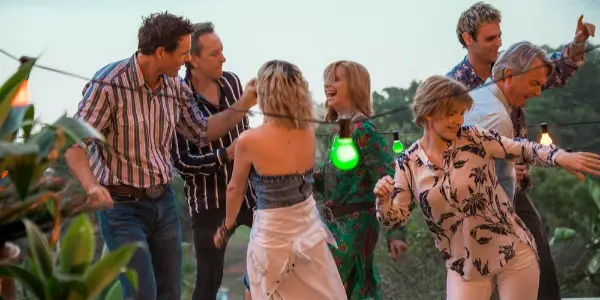
With a cast like that, does that bring improvisational energy to it, or do you mainly stick to the script?
Bryan Brown: There is both. There is an improvisational energy, but you’ll usually find that about 95% of the script is what we’ll end up coming out with. But you’ll wander around in rehearsal and throw in things that aren’t necessarily there, maybe a line or two will be changed because it fits better with you. Maybe someone will come up with something that’s not written there and you go, that’s so good, we’ve got to keep that in. So then it’ll be there when we shoot it, written down as part of the script.
It has to be fresh, even though it’s written down, it has to be fresh. So you’re always looking for the way that that becomes fresh to you. Maybe that’s what you call an improvisational energy: You’re not improvising, but you’re making feel like it’s the first time it’s ever been said.
One of the stand-outs of this cast is Richard E Grant, had you met him before working on this film, and how was he to work with on-set?
Bryan Brown: Yeah, I’ve known Richard for a long time. Rachel did a film with him probably 25 years ago [How To Get Ahead in Advertising], so they’d been friends for a long time. He’s no different to anyone else, in the sense that he works hard. He makes sure he knows his lines, makes sure that he’s being a participant in creating the whole movie rather than just his character or whatever. He has his own style of humour, which is what you’re getting when you get Richard in. He’s a lovely addition to the ensemble piece.
Film Inquiry thanks Bryan Brown for taking the time to talk with us.
Palm Beach is out in Australian cinemas on August 8, 2019. For all international release dates, see here.
Does content like this matter to you?
Become a Member and support film journalism. Unlock access to all of Film Inquiry`s great articles. Join a community of like-minded readers who are passionate about cinema - get access to our private members Network, give back to independent filmmakers, and more.


